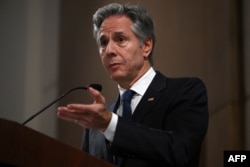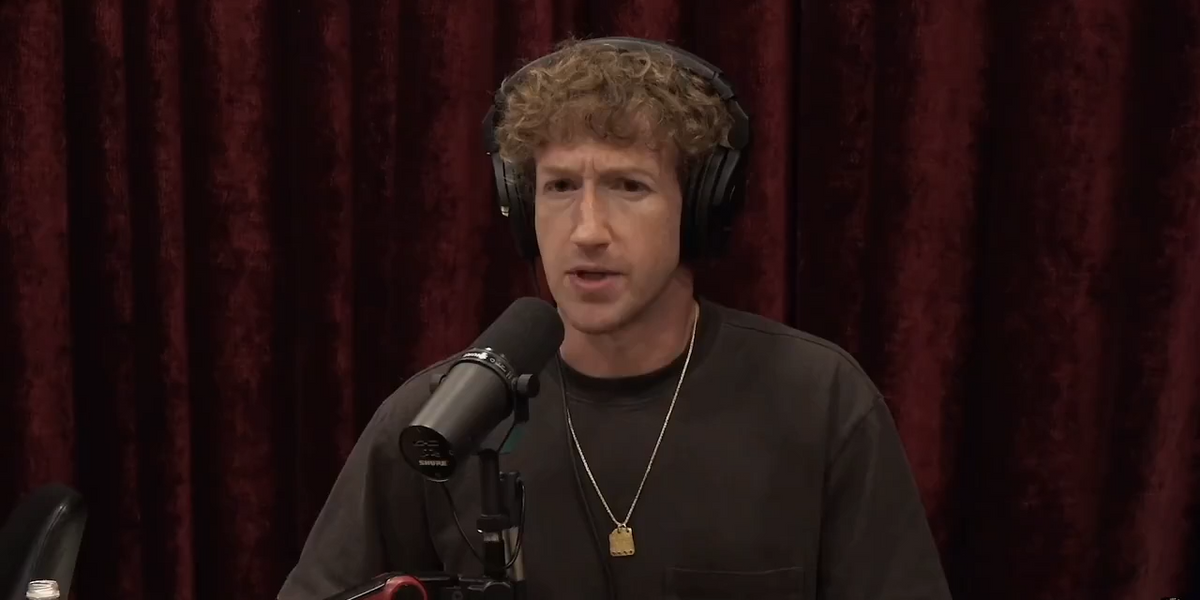washington —
Washington has slapped sanctions on Sudan's army leader, citing his responsibility for war crimes in a conflict that has bled the oil-rich country dry over the last year — sparking a famine, killing tens of thousands of people and driving millions from their homes — just a week after the U.S. sanctioned his opponent for acts it described as genocide.
Thursday's sanctions on Sudanese Armed Forces leader Abdel Fattah al-Burhan and a Hong-Kong-based weapons supplier block them from entering or transiting the United States and restrict their access to any U.S. assets.
This leaves both sides economically restrained in this brutal conflict that the State Department has described as the world's worst humanitarian crisis, but where Washington's options are limited because of its strained diplomatic ties to the large African nation. This conflict also has drawn in outside players, with Egypt and the United Arab Emirates arming the rivals.
During his final press conference on Thursday, Secretary of State Antony Blinken accused the SAF of war crimes. In last week's sanctions, the State Department accused the opposing Rapid Support Forces of genocide.
"The SAF has also committed war crimes, and it continues to target civilians," Blinken said. "It's obstructed the advancement of the peace process. It's refused to participate on numerous occasions in ceasefire talks that we've sought to convene, and together with the RSF, it's caused what is the world's worst humanitarian crisis that people are suffering through every day. And we believe strongly, as we said, there's no military solution to this conflict."
'Flawed' action, Sudan says
Sudan's government expressed its objection to the sanctions, calling them "flawed," "unethical" and "dubious."
"This decision lacks the basic principles of justice and objectivity, relying on implausible pretexts," read its statement, which was posted on social media platform X. "It also reflects a blatant disregard for the Sudanese people, who stand firmly united behind General Abdel Fattah al-Burhan as a symbol of their sovereignty and armed forces, and as a courageous leader in the battle for dignity against the terrorist Janjaweed militias."

Blinken did not address U.S. media reports citing anonymous U.S. officials that the SAF has used chemical weapons at least twice. VOA's query to the National Security Council went unanswered Thursday.
When asked by reporters whether both sides were equally responsible, Blinken replied, "The actions we took on the RSF, as you know, found a determination of genocide. The actions that we're looking at for the SAF go to war crimes. So there are gradations in these things, and we follow the law."
And Blinken expressed regrets that this conflict has escalated. It has followed many of the same contours as the Darfur conflict at the turn of the century.
"It is, for me, yes, another real regret that when it comes to Sudan, we haven't been able on our watch to get to that day of success," he said.
He added, "We'll keep working it for the next three days, and I hope the next administration will take that on as well."
Hemedti sanctioned
Last week's sanctions targeted RSF leader Mohammad Hamdan Daglo, whom the White House named as the leader of a wave of renewed ethnic cleansing, rape and systematic atrocities.
Daglo, who is better known by his nickname, Hemedti, was a commander in the Janjaweed militia considered largely responsible for the brutal Darfur conflict, in which Sudanese Arab Janjaweed militias used scorched-earth tactics on the Fur, Masalit and Zaghawa people of Western Sudan, killing at least 200,000. The scale and savagery of the violence prompted the International Criminal Court to issue its first-ever warrant for genocide to Sudan's then-president, Omar al-Bashir.
Hemedti led the RSF as a paramilitary unit until the April 2023 clash with government forces that sparked the current conflict.
The violence has plunged nearly 640,000 people into the misery of famine, the State Department said. And the United Nations estimates that 30 million people — more than half of the nation's population — need humanitarian assistance.
Daniel Volman, director of the African Security Research Project, told VOA it's "unlikely" that the incoming Trump administration will impose further sanctions. He said the U.S. and its allies bear some responsibility for "the conflict escalating to genocidal heights."
"I think that the United States, under both Democratic and Republican administrations, bears a major responsibility for failing to take effective action against the Bashir regime [which created the RSF and carried out the first genocide in Darfur] and for failing to take effective action to support the civil society groups fighting for a democratic government, which led to the current civil war," he said by email. "The United States is not alone in bearing responsibility. Russia, Iran and other countries are also arming the rival forces and prolonging the conflict."
Complicating factor
And, Volman said, the Biden administration's decision to sanction some of Hemedti's foreign backers by targeting companies based in the United Arab Emirates is also a complicating factor.
"The involvement of Egypt and the UAE in arming the rival forces and prolonging the civil war will complicate the Trump administration's relations with these two key allies and may lead them to expand and escalate their military intervention in Sudan," he said.
Andrew Payne, a lecturer in foreign policy and security at City, University of London, told VOA that for now, sanctions are the main tool that Washington has to constrain Khartoum.
"Sanctions are an easy tool that make it appear like an administration is doing something, regardless of whether that is an appropriate tool to use. It's relatively cost-free to the United States. If the alternative is something that requires political will, then that will has to be there. ... Sanctions are always the tool of cheapest resort, in a sense. So, it's a way of seeming like you're engaged, seeming like you're active, without considering more tougher measures," Payne said.

 By Voice of America (Africa) | Created at 2025-01-16 23:46:45 | Updated at 2025-01-17 14:06:25
14 hours ago
By Voice of America (Africa) | Created at 2025-01-16 23:46:45 | Updated at 2025-01-17 14:06:25
14 hours ago







